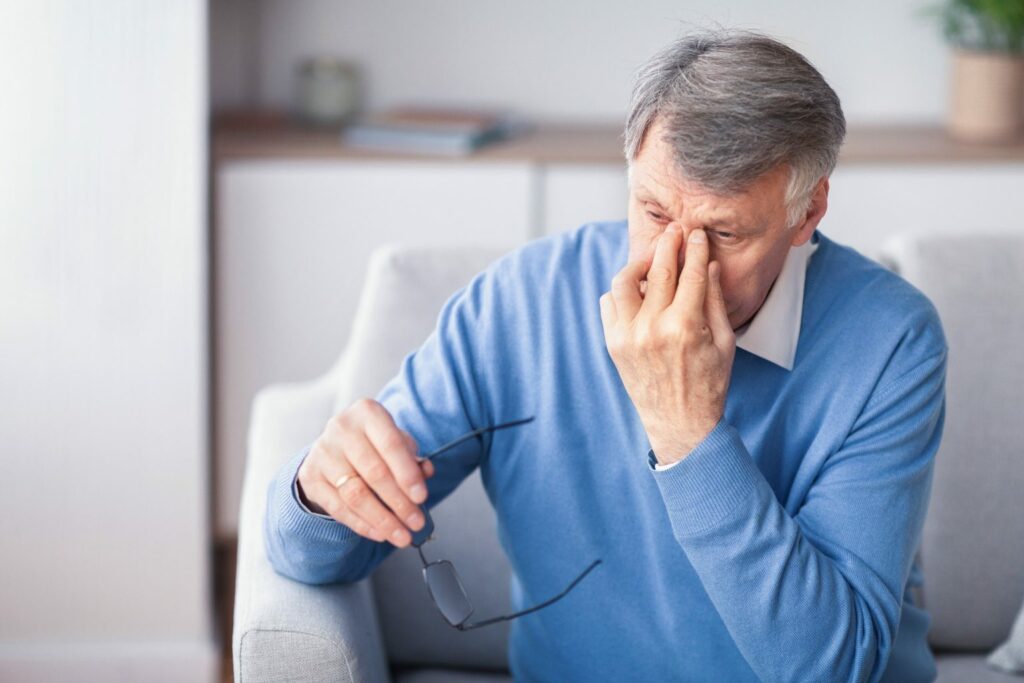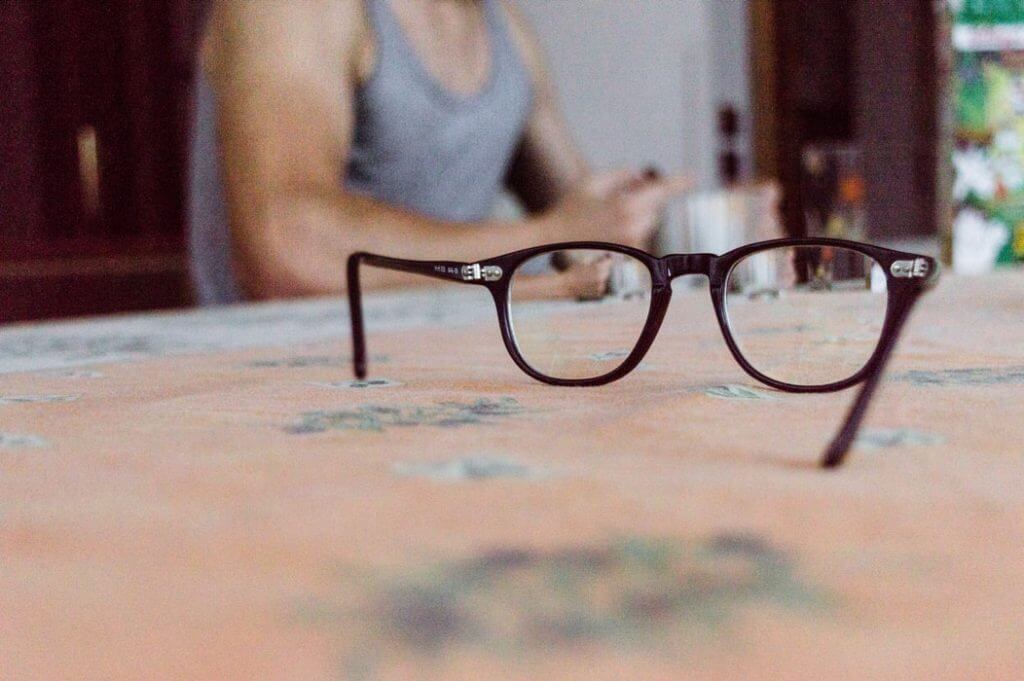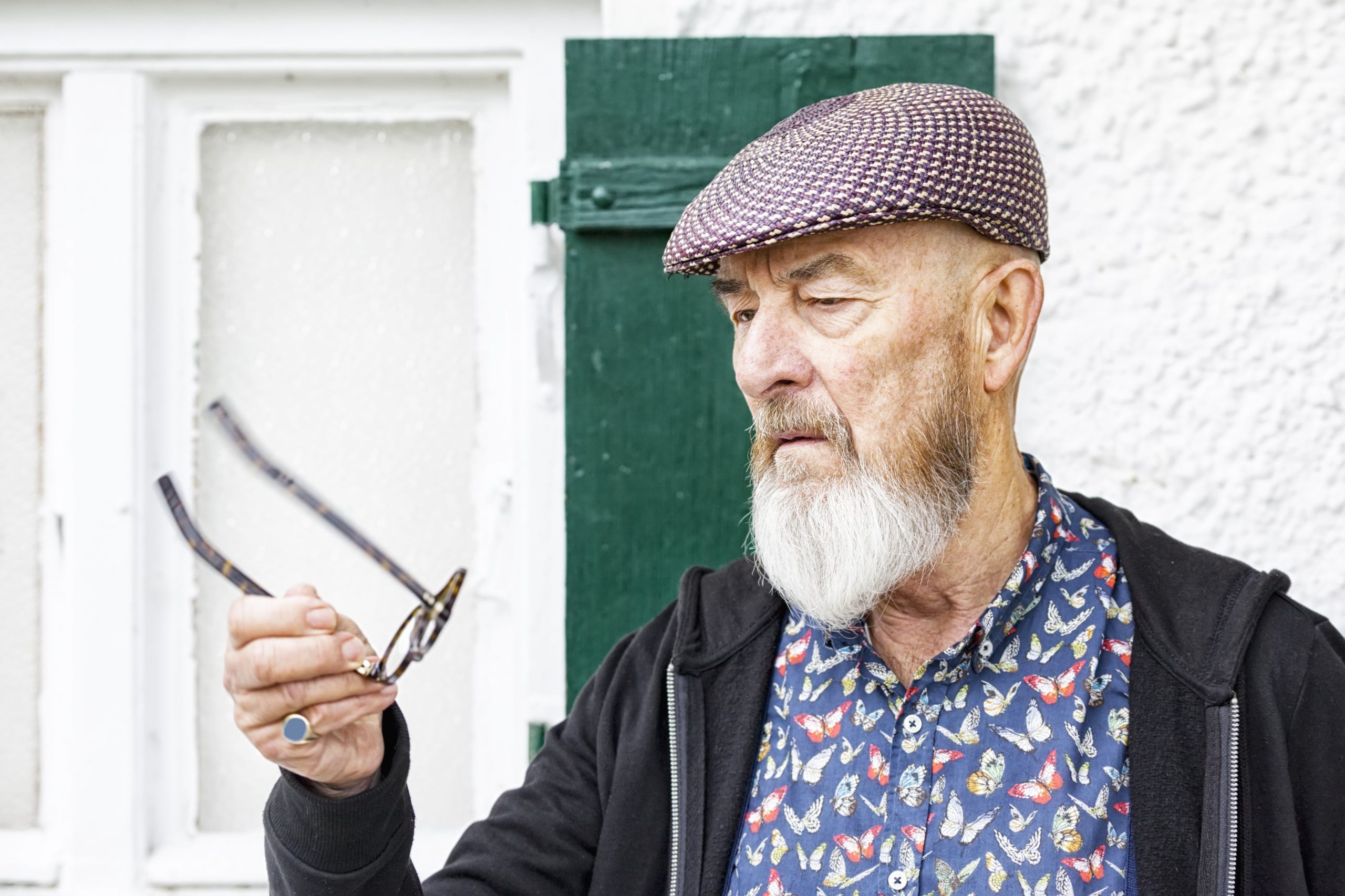Macular degeneration is a serious eye condition that gradually destroys central vision. It can make it difficult or impossible to read, drive, recognize faces or colors, and more. But with the help of low-vision glasses for macular degeneration, you can regain some of these abilities!
Low vision glasses are specifically designed to help people with macular degeneration see better by providing larger print and clearer images. They also have an anti-reflective coating on both lenses which helps eliminate glare from light sources like computer screens and fluorescent lights.
These special glasses are also available in prescription strength so even if your eyesight has deteriorated significantly over time, your optometrist will be able to find the right one for you!
Types of Low vision glasses for Macular Degeneration
Telescope glasses
Telescope glasses come in several types and several different powers. The use will determine the type the user will need. If a person wants to watch TV from a stationary position a Full diameter telescope system may be the best option. They provide a larger field of view than other types but are not used to moving around. If a person needs them to drive, bioptic telescopes for macular degeneration will be the best option. They help with near and distance vision.
These glasses have miniature telescopes mounted in the top of the lenses for brief viewing by dropping the head. This allows for seeing street signs and objects further off in the distance to be viewed more clearly. After spotting the object of regard the person will go back to the carrier lens in the bottom of the glasses.
Escoop’s
In many cases, people that have low vision and or macular degeneration just need a little bit more help than what regular glasses can do. In this case, the escoop glasses may do the trick. This prescription optical system is a proprietary combination of Magnification, glare reduction, image shifting with a prism, and contrast enhancement. They provide a 6-9% image size increase which may be just enough to keep your driver’s license. They help your distance vision and near vision by improving light transmission to a healthy retina.
Cocoons
Cocoons are usually yellow-tinted glasses that go over your regular glasses to help with glare and contrast sensitivity. They come in many colors for different lighting conditions and different disease conditions. See them here.
Prismatics
Reading is probably one of the most important things we do with our eyes, prismatics are glasses for age-related macular degeneration or other central vision loss diseases. They provide more power and magnification but require you to hold things much closer to your face to view them. Because of this, your eyes must converge more. This is where they get their name, the glasses also have a prism in them to relax your eyes from having to converge so much.
Clear Image
The clear image lens is a microscope lens that is also used for viewing things up close. It is usually mounted in the frame in front of just one eye. It comes in several magnifications.
Electronic Glasses
In the last few years, many advances have been made with smart glasses and advanced virtual reality technology. Devices such as eSight, IrisVision, NyEyes, and Vision Buddy have made significant strides in helping people that need multiple low vision aids reduce that down to one or a couple of devices. They have a wide focusing range and magnification abilities which allow the users to do many different activities with one device.
Vision Buddy can be plugged into a streaming device and you can watch tv inside of it. Instead of having a camera and tv screen and watching tv through it. This makes the image so much clearer. It also has the ability to plug into your computer and project the computer screen into the device. Last it will soon be coming with a small stand and camera to replace your CCTV’s.
NuEyes and Irisvision have two models each, one with a wider field of view but is bulkier and the other that is much smaller and plugs into a battery by a cord. These are much more mobile-friendly.
eSight Has a cool headset that helps balance the weight of their device and is smaller and sleeker than previous models.
Other Cool functions of the electronic low vision aids are things like being able to make phone calls and use apps like you would on your mobile phone. OCR (Optical character recognition) technology, which can read books, papers, computer screens, and menus to you. You can take snapshots of reading material and save them for later and I believe just taking regular photos is possible too.
Color enhancement is also a useful function for those that are visually impaired. The devices all have the ability to use different color filters and contrast-enhancing technology.
How do Low Vision Glasses for Macular Degeneration work?
Macular degeneration is a disease that affects your central vision. The macula is the area with the most densely packed photoreceptors which gives you the most detailed vision. When that area is damaged you will either have a blurred image or a scotoma (blind spot) in this area. Most of the glasses for age related macular degeneration magnify the image to get the image beyond the area of the damaged retina. In the early stage of macular degeneration, patients may have issues with contrast sensitivity, light sensitivity, or low light levels. The filters that can be added to most of the glasses can help with these issues as well.
Why Should you use them?
The obvious reason to get a pair of glasses for AMD is so that you can see better…See better to read, see better to drive, see better when watching the TV, etc. The other reason is to keep your independence. Nothing makes a person’s mental well-being deteriorate faster than being or feeling useless. Keep doing the things that you enjoy even if it requires some unique vision tools to do so. People will admire your drive and passion for life, they won’t criticize or judge you because you have different-looking glasses on.
Where can you find the special glasses?
Because you’re dealing with macular degeneration and vision loss, you’ll need to be seeing an eye doctor on a regular basis anyway. So as long as you don’t need to see a retinal specialist for injections, you might as well see a low vision specialist. Which is an optometrist that specializes in fitting macular degeneration glasses. This type of eye doctor can also follow your disease condition until you need to be referred to a retinal specialist.
Who would benefit from them?
There is no right or wrong answer to this, anyone with low vision that is having trouble seeing or doing their normal daily activities could benefit from some type of low vision glasses. Anyone struggling at night with glare, someone struggling to read, difficulty seeing the TV even with their regular glasses on.
How expensive are they?
- Since there is such a range of different types of low vision glasses for macular degeneration. There is also a large range of costs. The Cocoons run about $35.00. The prismatics can be a couple hundred, and the telescopes can start at about $1500.00 and go up from there. They tend to be relative to the severity of your condition and the many different needs you may have. A pair of telescope glasses can serve multiple purposes with multiple reading caps, the more caps the more money.
FAQ’s about low vision glasses
Do I need a prescription?
Telescopes and Escoops would require a prescription from an eye doctor. Filtered glasses like Cocoons do not. Prismatics might be found online however knowing the right powers that you might need may be difficult so it is still recommended to get them from your doctor.
Can they be used for other disease conditions?
Yes, there are many other eye diseases that affect central vision like macular degeneration and these glasses can help most of these conditions.
Can any eye doctor prescribe them?
Yes for the most part, however, if they aren’t a low vision specialist they probably don’t have the fitting sets to be able to allow you to try them on and see the benefits for yourself. It is best to go to a low vision specialist.
Do they work for people with severe macular degeneration?
It depends, everyone’s condition and needs are different it is best to go to the low vision specialist where you can try on the different devices to be sure that they accomplish what you need them to do.
Macular Degeneration glasses can be life-changing for some people. Providing them with the ability to remain productive and independent. Being able to take care of yourself, drive where you need to go, and get the information you need from either reading, the computer, or TV is so important for a person. The minute you feel like you have become a burden on others it can become very depressing. If you are suffering from low vision contact one of our low vision specialists in your area today!














